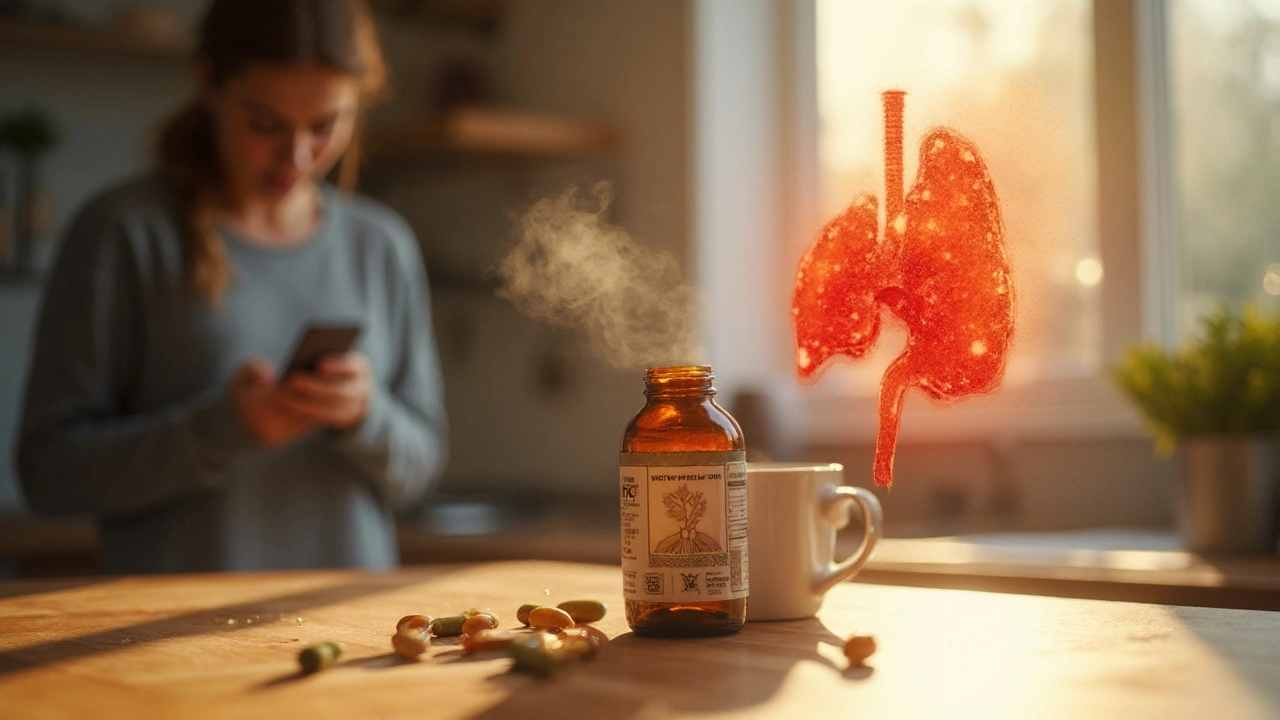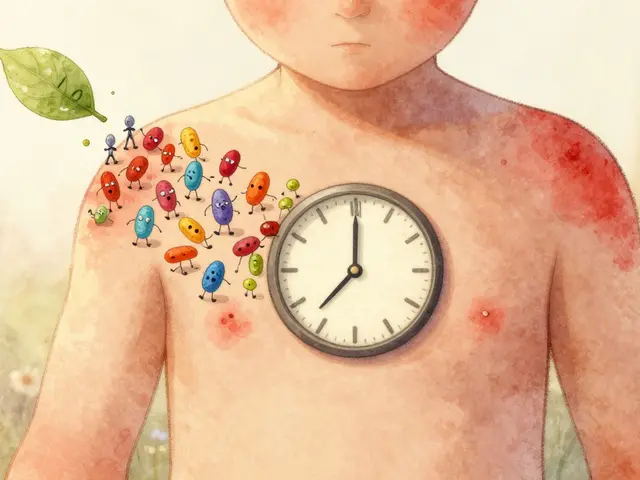Pyrrolizidine Alkaloids – What They Are and Why You Should Care
Ever heard of pyrrolizidine alkaloids (PAs)? They’re natural chemicals that show up in a bunch of plants, especially those you might find in teas, honey, or even some grain products. While most of us never notice them, they can cause real liver damage if you consume enough over time. Below, we’ll break down where PAs hide, what symptoms to watch for, and easy ways to keep them out of your diet.
Common Food and Herb Sources of PAs
Not all plants are bad, but a few common ones pack PAs. The biggest culprits are:
- Comfrey – often used in herbal poultices and some natural skin creams.
- Coltsfoot – a herbal tea ingredient that’s popular in traditional cough remedies.
- Senecio species – found in some wild greens and hobbyist foraged salads.
- Honey – bees can pick up PA‑containing pollen, so some honey batches carry low levels.
- Grain products – if weeds with PAs grow among wheat or corn, traces can end up in flour.
If you buy organic or stick to reputable brands, the risk drops dramatically. Still, it’s good to know what to avoid, especially if you use home‑grown herbs or foraged foods.
Health Effects and How to Spot Problems
Short‑term exposure usually isn’t obvious. The real danger is chronic intake: PAs can slowly damage liver cells, leading to veno‑occlusive disease or even cancer in severe cases. Signs to watch for include:
- Unexplained fatigue or weakness.
- Yellowing of the skin or eyes (jaundice).
- Upper‑right abdominal pain.
- Unusual bruising or bleeding.
If any of these pop up and you’ve been consuming herbal teas or supplements regularly, it’s worth checking with a doctor and mentioning possible PA exposure.
Regulators in the U.S., EU, and many other regions have set limits for PA levels in food and medicines. However, limits vary, and not all products are tested. That’s why staying informed is key.
Here are some quick steps to lower your PA risk:
- Read labels – Look for products that state they are PA‑free or have been tested for PAs.
- Avoid raw comfrey – Never use fresh comfrey leaves or roots in recipes or skin applications.
- Buy reputable honey – Choose honey from brands that test for pesticide and PA contamination.
- Limit foraged greens – If you pick wild plants, learn to identify PA‑bearing species and steer clear.
- Consult a pharmacist – Before taking any new herbal supplement, ask if it contains known PA sources.
Most people won’t face serious issues if they stick to mainstream foods and vetted supplements. But a little awareness goes a long way, especially for pregnant women, kids, or anyone with liver problems.
Bottom line: pyrrolizidine alkaloids are hidden in a few common plants, and long‑term exposure can hurt your liver. By checking ingredient lists, buying from trusted sources, and staying clear of raw comfrey or unknown wild greens, you can enjoy your meals and teas without worrying about hidden toxins.
2
Hound’s Tongue Supplement: Benefits, Risks, and Safe Alternatives (2025 Guide)
Curious about Hound’s Tongue supplements? Get the truth on benefits, serious liver risks, legal status in Australia, and safer science-backed alternatives.
Latest Posts
Popular Posts
-
 Supply Chain Economics: How Generic Drug Distributors Achieve Efficiency Under Pressure
Supply Chain Economics: How Generic Drug Distributors Achieve Efficiency Under Pressure
-
 Arthritis Types Explained: Osteoarthritis vs. Rheumatoid Arthritis and Other Common Forms
Arthritis Types Explained: Osteoarthritis vs. Rheumatoid Arthritis and Other Common Forms
-
 Prescriber Education Resources: Essential Guides for Doctors on Generic Medications
Prescriber Education Resources: Essential Guides for Doctors on Generic Medications
-
 Low-GI Diet for Weight Control: What Actually Works
Low-GI Diet for Weight Control: What Actually Works
-
 When to Call 911 vs Contact Your Doctor About Medication Reactions
When to Call 911 vs Contact Your Doctor About Medication Reactions



